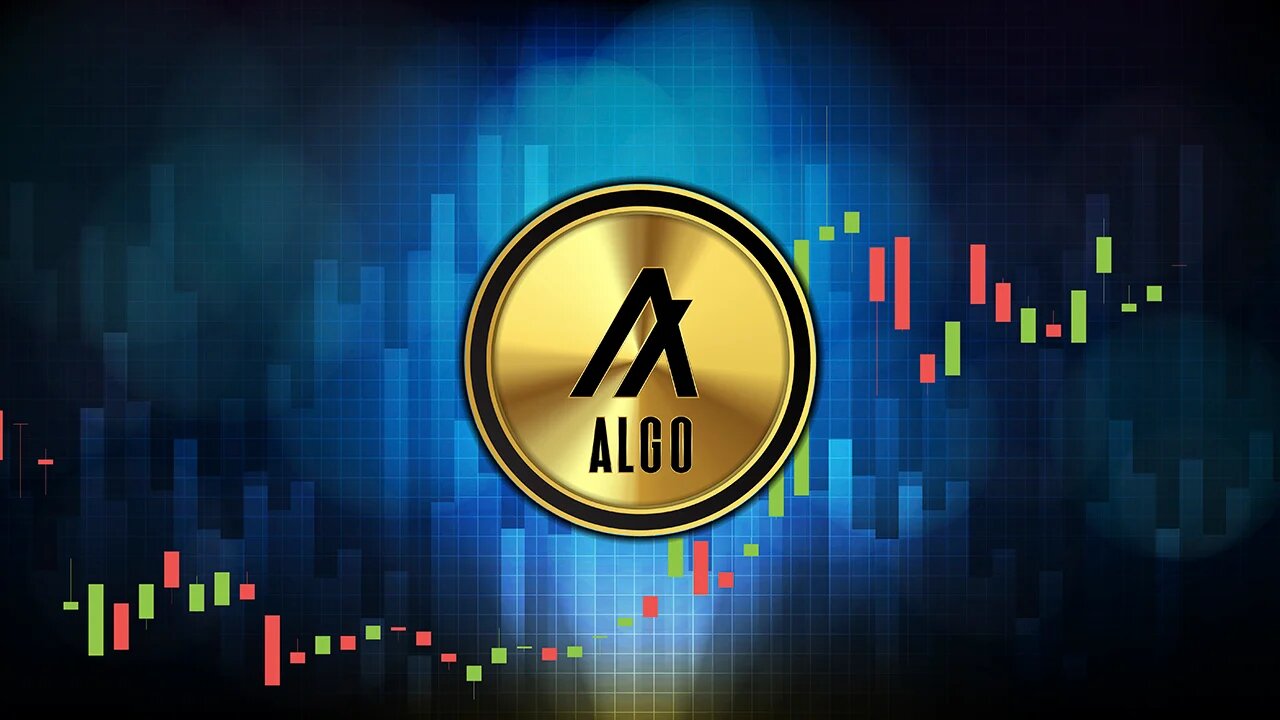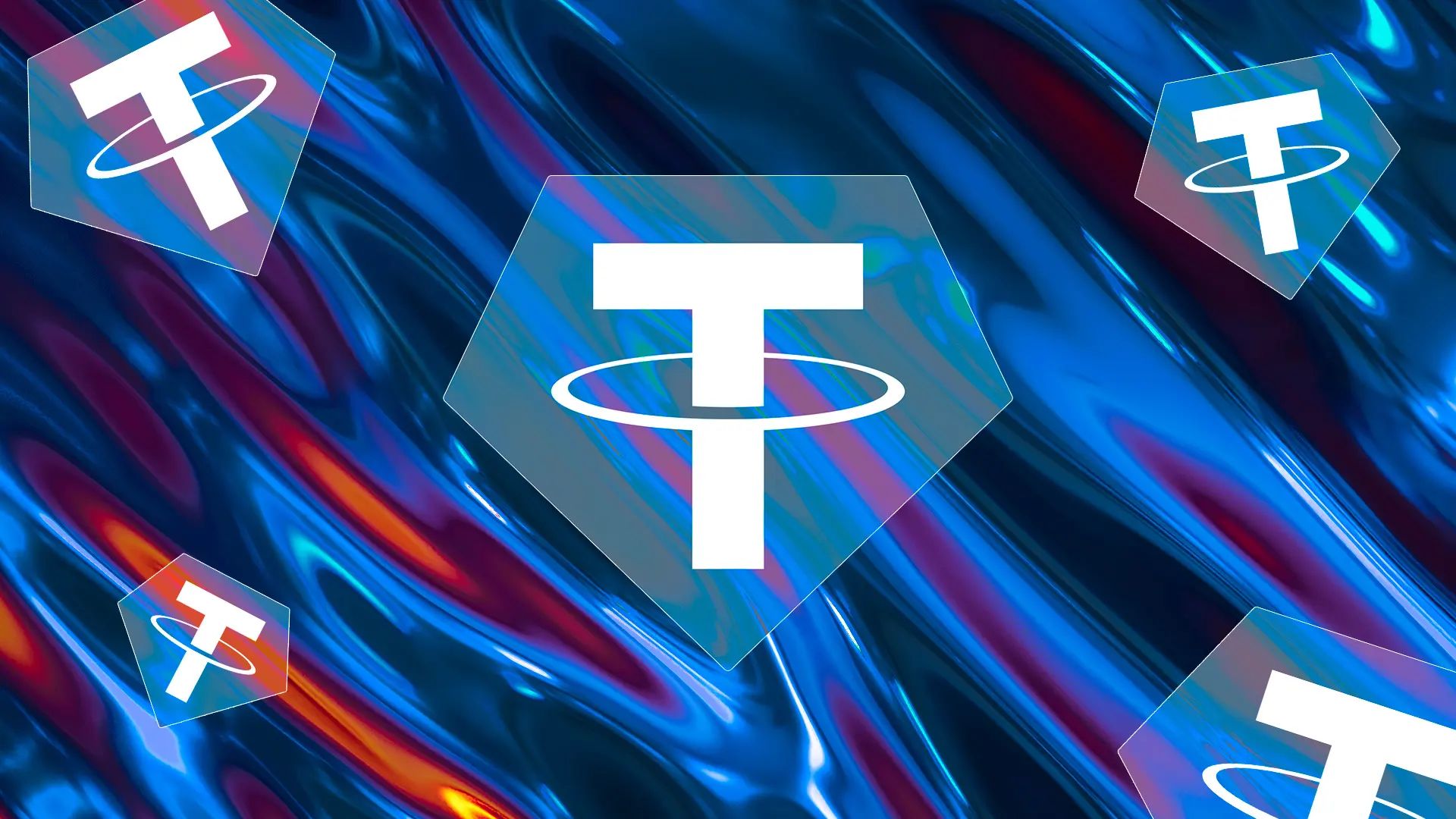Introduction
Welcome to our analysis of the recent drop in the value of Algorand (ALGO) and the factors that may have contributed to this decline. Algorand, a blockchain platform, has experienced a significant decrease in its market value in recent weeks, prompting investors and enthusiasts to seek an explanation for this downturn.
Since its launch in 2019, Algorand has been hailed as a promising blockchain project, offering high scalability, security, and decentralization. Supported by a team of experienced researchers and industry professionals, Algorand utilizes a unique consensus mechanism known as Pure Proof-of-Stake (PPoS) to ensure fast, secure, and efficient transactions on its network.
Although Algorand initially gained traction and established itself as a prominent player in the blockchain space, it has recently experienced a downward trend in its token price. In this analysis, we will explore various potential reasons for this drop, ranging from market factors and investor sentiment to network issues and scalability challenges.
It’s important to note that this analysis is intended to provide a comprehensive understanding of the situation and should not be considered as financial advice. The cryptocurrency market is highly volatile, and there are numerous variables that can influence the price of a token.
Now, let’s delve into the background of Algorand and examine the reasons behind its recent decline. Understanding these factors will allow us to gain insights into the current state of Algorand and its potential for future growth.
Background of Algorand
Algorand was founded by Silvio Micali, a renowned computer scientist and MIT professor, with the goal of creating a scalable, secure, and decentralized blockchain platform. The project emerged in response to the limitations and shortcomings of existing blockchain networks, such as Bitcoin and Ethereum.
Algorand differentiates itself with its innovative consensus mechanism called Pure Proof-of-Stake (PPoS). Unlike traditional proof-of-work (PoW) algorithms, PPoS eliminates the need for energy-intensive mining and allows for quick block confirmation times. This makes the Algorand network highly efficient and eco-friendly.
Furthermore, Algorand’s PPoS consensus provides a high level of security and decentralization. By randomly selecting a small group of token holders to participate in each block’s validation, Algorand ensures that the network remains resistant to attacks and manipulation.
Algorand gained significant attention during its initial coin offering (ICO) in 2019, raising over $60 million. Since then, it has been consistently working on expanding its ecosystem and attracting partnerships with various companies and institutions.
The team behind Algorand has dedicated their efforts to enhancing the scalability, security, and functionality of the platform. They have released regular updates and improvements to address any shortcomings and ensure a smooth user experience.
Algorand’s token, ALGO, serves as both a utility and governance token within the ecosystem. It incentivizes participation in the network by offering rewards to token holders who actively engage in securing the blockchain and validating transactions.
With a strong emphasis on institutional adoption and enterprise solutions, Algorand has been able to forge partnerships with prominent entities in the finance, real estate, and supply chain sectors. These partnerships have helped to increase the visibility and credibility of the Algorand project.
Now that we have a better understanding of the background and key features of Algorand, let’s explore the factors that may have contributed to its recent drop in value.
Overview of Algorand’s Drop
In recent weeks, Algorand (ALGO) has experienced a significant decrease in its market value, causing concern among investors and enthusiasts. To understand the reasons behind this drop, it is important to analyze the overall market conditions and specific factors affecting Algorand’s performance.
Firstly, it is crucial to note that the cryptocurrency market as a whole has been highly volatile and subject to rapid price fluctuations. Algorand’s drop in value can be attributed, in part, to the general market sentiment and the impact of external events on investor confidence.
Additionally, investor sentiment plays a crucial role in determining the price movement of any cryptocurrency. Any negative news or developments surrounding Algorand may have contributed to a decrease in demand and subsequent drop in its token’s value. Therefore, understanding the specific factors affecting investor sentiment towards Algorand is key.
Furthermore, the competition within the blockchain industry has intensified in recent years. Algorand’s drop in value may be a result of increased competition from other blockchain platforms that offer similar features and solutions. As investors have more options to choose from, they may have diversified their portfolios, leading to a decrease in demand for ALGO tokens.
Another factor that could have influenced the drop in Algorand’s value is regulatory concerns. Cryptocurrencies operate in a decentralized and global environment, making them subject to different regulations and governmental policies. Any adverse regulatory developments or uncertainty surrounding the legal status of cryptocurrencies can negatively impact their value.
Moreover, Algorand’s tokenomics and token distribution can also impact its price movement. If there is an imbalance in token supply and demand, it can cause fluctuations in its market value. Additionally, the selling pressure from early investors or project stakeholders can contribute to a drop in token price.
It is important to note that while these factors provide insights into Algorand’s drop in value, they do not guarantee a complete understanding of the situation. The cryptocurrency market is inherently complex and influenced by a myriad of factors. Therefore, it is crucial to consider multiple perspectives and conduct further research to gain a holistic view of Algorand’s performance.
Now that we have explored the overview of Algorand’s drop, we will delve deeper into each of these factors to gain a more comprehensive understanding of their impact on Algorand’s value.
Market Factors and Investor Sentiment
The cryptocurrency market is heavily influenced by various market factors and investor sentiment, and Algorand’s drop in value can be attributed to these dynamics. It is important to examine how these factors have impacted the perception and demand for Algorand (ALGO) tokens.
One crucial market factor is the overall sentiment towards the cryptocurrency industry. The volatility and unpredictability of the market can significantly affect investor confidence. Negative news, such as regulatory crackdowns, security breaches, or market manipulation allegations, can create a sense of skepticism and lead to a decrease in demand for Algorand tokens.
Furthermore, the performance of major cryptocurrencies, such as Bitcoin and Ethereum, also impacts investor sentiment towards other cryptocurrencies, including Algorand. If these leading cryptocurrencies experience a decline in value, it often creates a ripple effect across the entire market, including Algorand.
Institutional interest and involvement in the cryptocurrency space can also shape investor sentiment. The entry of institutional investors, such as hedge funds or large financial institutions, can bring credibility and stability to the market. Conversely, any negative developments related to institutional involvement, such as regulatory concerns or high-profile investment losses, can adversely impact investor sentiment and lead to a decrease in demand for Algorand tokens.
Moreover, market sentiment is highly sensitive to market trends and fads. There are instances when certain types of cryptocurrencies gain significant attention and investment, while others may fall out of favor. This trend-driven sentiment can contribute to fluctuations in the value of Algorand, particularly if the project is not aligned with the prevailing market narratives or if it fails to attract attention compared to other projects.
Furthermore, investor sentiment can be influenced by the perceived value and utility of the Algorand blockchain platform. If investors believe that the technology and solutions offered by Algorand have a strong market demand and potential for real-world adoption, it can drive positive sentiment and increase demand for ALGO tokens. Conversely, if there are concerns about the scalability, security, or practical use cases of Algorand, it can lead to a decrease in demand and a drop in token value.
It is important to note that market factors and investor sentiment interact in complex ways, and the dynamics can vary over time. Therefore, regular assessment of these factors is necessary to understand the shifts in Algorand’s value and to navigate the highly volatile cryptocurrency market.
In the following sections, we will explore other potential factors, such as network issues and scalability challenges, competition, regulatory concerns, and tokenomics and token distribution, that may have contributed to Algorand’s recent drop in value.
Network Issues and Scalability Challenges
One significant factor that could have contributed to the drop in Algorand’s value is network issues and scalability challenges. While Algorand’s Pure Proof-of-Stake (PPoS) consensus algorithm offers several advantages, including speed and security, it is not immune to technical limitations.
As the popularity and usage of the Algorand network increase, scalability becomes a critical concern. The ability of a blockchain platform to handle a large number of transactions per second is crucial for its adoption and long-term success. If the Algorand network encounters scalability issues, such as slow transaction confirmation times or congestion, it can hamper its usability and deter potential users and investors.
Additionally, network issues, such as network outages, bugs, or security vulnerabilities, can negatively impact investor confidence and lead to a decline in demand for Algorand tokens. Even temporary disruptions or concerns about the reliability of the network can prompt investors to sell their holdings and seek alternatives, thereby contributing to the drop in Algorand’s value.
Moreover, competing blockchain platforms have been working towards developing scalable solutions to cater to the increasing demand for faster and more efficient transactions. Algorand faces stiff competition from other projects that offer similar features and scalability solutions. If these competing platforms gain more traction and user adoption, it can divert attention and investments away from Algorand, resulting in a decrease in demand for its tokens.
Algorand’s team has recognized the importance of addressing scalability challenges and is actively working on implementing improvements to enhance the network’s capacity and performance. These improvements include research and development of layer-2 solutions, such as state channel technology or sidechains, to offload some transaction processing from the main chain and increase scalability.
Additionally, collaborations with academia and industry partners can contribute to the development of innovative solutions that address the scalability challenges faced by Algorand and the broader blockchain ecosystem. These collaborative efforts can help bolster investor confidence and attract more users to the network.
However, it is important to note that overcoming scalability challenges is a complex task that requires careful planning, rigorous testing, and continuous innovation. While progress has been made, the scalability of the Algorand network remains an ongoing concern that can impact its value in the short and long term.
In the subsequent sections, we will explore other potential factors, including competition, regulatory concerns, and tokenomics and token distribution, to gain a comprehensive understanding of the drop in Algorand’s value.
Impact of Competition
Competition within the blockchain industry is fierce, and it can have a significant impact on the value of cryptocurrencies like Algorand (ALGO). As blockchain technology advances and more projects emerge, the market becomes saturated with alternatives, creating choices for investors and users.
One factor contributing to Algorand’s drop in value could be the increased competition from other blockchain platforms that offer similar features and solutions. These platforms may present themselves as more appealing options for investors, leading to a decrease in demand for ALGO tokens.
When evaluating competing projects, investors consider factors such as scalability, security, decentralization, and utility. If a competitor offers a more scalable and efficient solution than Algorand, it may attract investors seeking superior blockchain technologies. In this scenario, Algorand’s value could be negatively impacted as investor sentiment shifts towards these alternative platforms.
In addition to technological factors, partnerships and collaborations can also influence the competitive landscape. If a competing blockchain platform secures high-profile partnerships with established companies or institutions, it may enhance its credibility and attract investor attention, diverting interest and investments away from Algorand.
Furthermore, competition is not limited to just established projects; new blockchain platforms and protocols continuously enter the market, aiming to disrupt the status quo. These new entrants may introduce innovative technologies, improved scalability, or novel use cases that garner significant interest and investment.
However, it is essential to remember that competition is not solely detrimental to Algorand. It can also serve as a driving force for innovation and improvement. Recognizing the competitive landscape, Algorand’s team has been dedicated to advancing the platform’s features, scalability, and partnerships.
Algorand’s ability to differentiate itself from competitors and provide unique value propositions will be crucial in maintaining and increasing its market share. By continuously improving its technology, expanding its ecosystem, and building strong partnerships, Algorand can position itself as a formidable player in the competitive blockchain market.
As we continue our analysis, we will explore other potential factors contributing to Algorand’s drop in value, including regulatory concerns, tokenomics and token distribution, and overall market conditions.
Regulatory Concerns
Regulatory concerns have been a significant factor impacting the value of cryptocurrencies, including Algorand (ALGO). The regulatory landscape surrounding cryptocurrencies is still evolving, with different jurisdictions implementing varying regulations and policies.
Uncertainty surrounding the legal and regulatory status of cryptocurrencies can create a sense of hesitation among investors. Regulatory crackdowns or restrictive regulations imposed by governments can lead to a decline in investor confidence and negatively impact the value of Algorand tokens.
Regulatory concerns primarily revolve around a few key aspects. Firstly, there is the issue of classification. Different jurisdictions classify cryptocurrencies differently – some label them as securities, while others view them as commodities or digital assets. Any unfavorable classification can restrict the usage and trading of Algorand tokens, impacting their value and market demand.
Secondly, anti-money laundering (AML) and know-your-customer (KYC) regulations play a crucial role in shaping investor sentiment. Compliance with these regulations is essential for maintaining the legitimacy and adoption of cryptocurrencies. Any regulatory actions or concerns related to AML and KYC can create uncertainties for investors and limit the accessibility of Algorand tokens.
Thirdly, taxation policies surrounding cryptocurrencies can significantly impact their value. Governments around the world are developing guidelines and rules for cryptocurrency taxation, imposing taxes on income, capital gains, and transactions. Unclear or burdensome tax policies can deter investors and lead to a decrease in demand for Algorand tokens.
Furthermore, regulatory concerns extend to issues such as investor protection, fraud prevention, and market manipulation. Governments and regulatory bodies strive to safeguard investors and maintain the integrity of financial markets. If there are instances of fraudulent activities or market manipulation associated with Algorand or the broader cryptocurrency market, it can lead to increased regulatory scrutiny and a decrease in investor trust.
It is worth noting that regulatory concerns are not unique to Algorand alone and impact the entire cryptocurrency ecosystem. To mitigate these concerns, Algorand has been active in engaging with regulators and stakeholders, establishing compliance standards, and implementing measures to ensure the network’s security and integrity.
As the regulatory landscape evolves, with increased clarity and collaboration between the industry and regulators, Algorand’s value may be positively impacted. Trust and compliance are essential for widespread adoption, investor participation, and ultimately, the long-term success of the Algorand project.
Next, we will explore other potential factors contributing to the drop in Algorand’s value, including tokenomics and token distribution, as well as overall market conditions.
Tokenomics and Token Distribution
The tokenomics and distribution of Algorand (ALGO) play a significant role in shaping its value and market dynamics. Tokenomics refers to the economics and mechanics of a cryptocurrency, including factors such as token supply, distribution, utility, and governance.
One factor that could have contributed to the drop in Algorand’s value is the token distribution. The initial distribution of tokens often involves various stakeholders, including early investors, project founders, advisors, and the general public. If there is a perception that the token distribution is unfairly skewed towards a select few or that there is a significant concentration of tokens in the hands of a small group, it can impact investor sentiment and confidence in the project.
A concentrated token distribution can lead to price manipulation and may hinder the decentralization and governance aspects of the blockchain platform. Conversely, a well-distributed token supply that encourages wider participation can foster a healthy ecosystem and increase demand for Algorand tokens.
Token utility is another important aspect. The demand for ALGO tokens is influenced by their use cases within the Algorand ecosystem. If the tokens serve as a means of transaction, governance, or access to specific services, it can contribute to their value and demand. Furthermore, solid utility and a thriving ecosystem can attract more users, developers, and partners, enhancing the overall value proposition of Algorand.
Economic factors such as token inflation and token burning also impact tokenomics. Inflation refers to the gradual increase in token supply over time, which can dilute the value of each token if not managed properly. On the other hand, token burning, where a portion of the tokens is permanently removed from circulation, can reduce the supply and potentially have a positive impact on the token’s value.
Additionally, the overall market conditions and investor perception of tokenomics play a crucial role. Investors analyze the potential for token appreciation based on factors such as network growth, adoption, and the ability of the platform to create value within its ecosystem. Any concerns or doubts about the long-term viability and sustainability of the tokenomics model can contribute to a drop in Algorand’s value.
Overall, tokenomics and token distribution are pivotal factors that impact the value and perception of Algorand. A fair and well-distributed token supply, coupled with robust utility and a sustainable economic model, can contribute to the long-term success and value appreciation of the project.
As we conclude this analysis, it is important to note that multiple factors, including market conditions, regulatory concerns, competition, and network issues, may have contributed to the drop in Algorand’s value. By comprehensively studying these factors, investors can gain a deeper understanding of the project’s current state and potential for future growth.
Conclusion
In conclusion, the drop in the value of Algorand (ALGO) can be attributed to a combination of factors. Multiple market factors and investor sentiment, including general market conditions, competition, and regulatory concerns, have played a significant role in influencing the perception and demand for Algorand tokens.
Network issues and scalability challenges have also impacted Algorand’s value as investors seek blockchain platforms that offer superior scalability and efficiency. Algorand’s ability to address these challenges and enhance its network’s performance will be crucial for future growth.
Additionally, the tokenomics and token distribution of ALGO tokens have influenced their value. Fair and well-distributed token supply, along with strong utility and ecosystem development, contribute to the overall value proposition of Algorand.
It is important to emphasize that the cryptocurrency market is highly volatile and subject to rapid changes. The value of Algorand and other cryptocurrencies can be influenced by numerous variables, making it challenging to pinpoint a single cause for a drop in value.
However, by analyzing and understanding the various factors affecting Algorand, investors can make more informed decisions and gauge the project’s potential for growth. Algorand’s team is dedicated to addressing the challenges, staying ahead of its competition, and fostering a robust ecosystem to further drive value for its token holders.
As with any investment, it is essential to conduct thorough research, assess the market conditions, and consider multiple perspectives before making decisions. The cryptocurrency market remains highly dynamic, and diligent monitoring is crucial for successful investment strategies.
By keeping abreast of the developments and improvements in Algorand’s technology, ecosystem, and market positioning, investors can make informed decisions and navigate the cryptocurrency landscape with confidence.

























